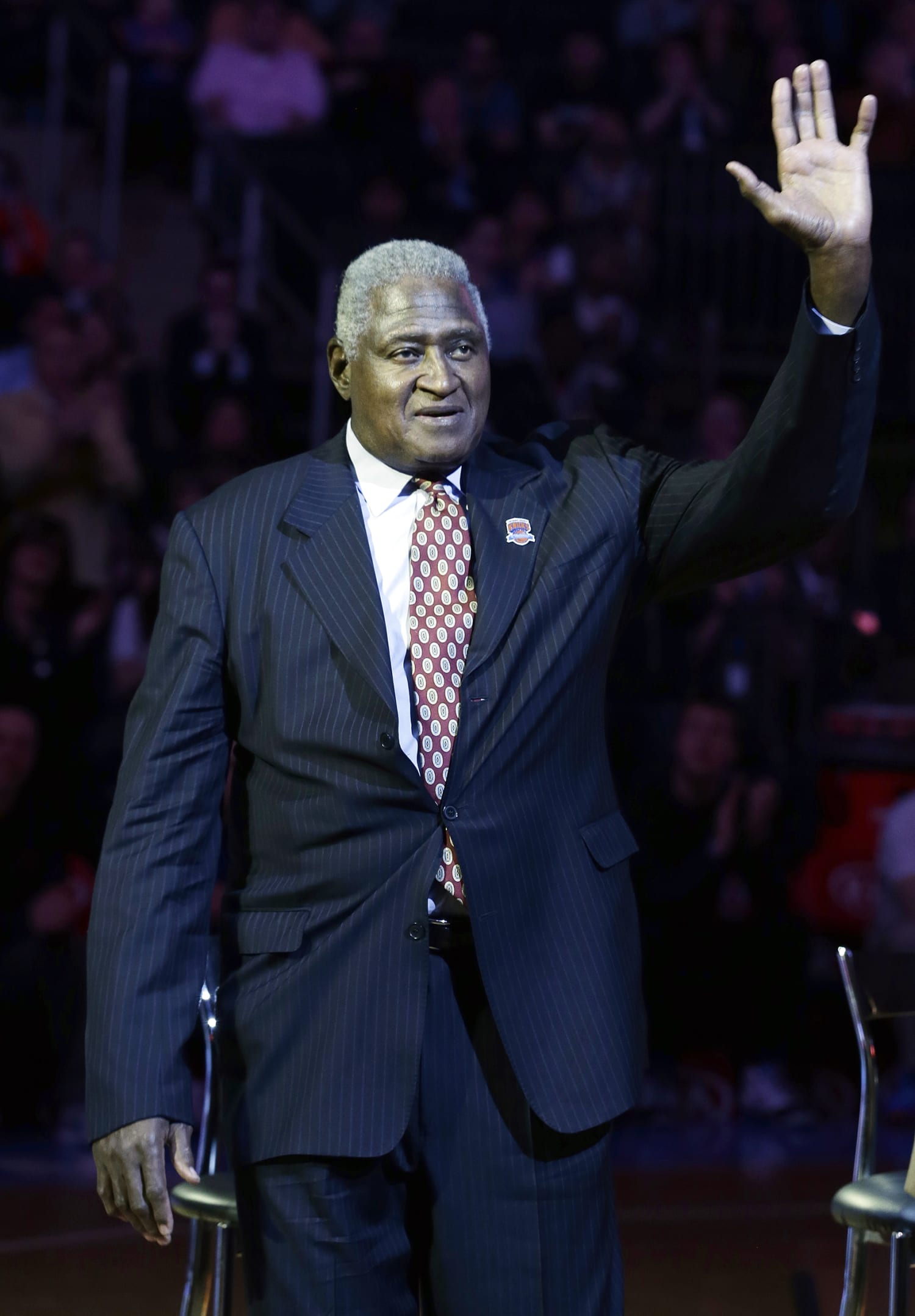[ad_1]

Willis Reed, who dramatically emerged from the locker room minutes before Game 7 of the 1970 NBA Finals to spark the New York Knicks to their first championship and create one of sports’ most enduring examples of playing through pain, died Tuesday. He was 80.
Reed’s death was announced by the National Basketball Retired Players Association, which confirmed it through his family. The cause was not released, but Reed had been in poor health recently and was unable to travel to New York when the Knicks honored the 50th anniversary of their 1973 NBA championship team during their game against New Orleans on Feb. 25.
The Knicks tweeted a photograph picturing Reed from behind walking onto the floor as his teammates were warming up for the 1970 finale, one of the most memorable moments in NBA and Madison Square Garden history.
“As we mourn, we will always strive to uphold the standards he left behind — the unmatched leadership, sacrifice and work ethic that personified him as a champion among champions,” the team said. “His is a legacy that will live forever.”
Nicknamed “The Captain,” Reed was the undersized center and emotional leader on the Knicks’ two NBA championship teams, with a soft shooting touch from the outside and a toughness to tussle with the era’s superstar big men on the inside.
His accomplishments — seven All-Star selections, two NBA Finals MVP awards among them — would have warranted Hall of Fame induction by themselves. During the 1969-70 season, he became the first player to sweep the MVP awards for the regular season, All-Star Game and NBA Finals.
But his spot in history was secured simply by walking onto the floor on the final night of that season.
Reed had injured a thigh muscle in Game 5 of the series between the Knicks and Los Angeles Lakers, tumbling to the court in pain. He sat out Game 6 as counterpart Wilt Chamberlain had 45 points and 27 rebounds in a Lakers romp that forced a deciding game at Madison Square Garden.
Reed’s status was unknown even to his Knicks teammates as he continued getting treatment until shortly before Game 7. Both teams were warming up when Reed came out of the tunnel, fans rising and roaring when they saw him emerge from the tunnel leading to the locker room.
“And here comes Willis and the crowd is going wild,” radio announcer Marv Albert said.
The Lakers stopped to watch Reed, who then made two quick jump shots in the early minutes of the game, running back down the court after both with a noticeable limp. He wouldn’t score again but the Knicks didn’t need it, with their captain’s return and Walt Frazier’s 36 points and 19 assists energizing them to a 113-99 romp and their first NBA title.
Frazier’s performance was one of the finest ever in a deciding game, but it was forever a footnote to Reed’s return. In 2006, to coincide with the NBA’s 60th anniversary, it finished third in voting of the league’s 60 greatest playoff moments, behind Michael Jordan’s championship-winning jumper for his sixth title in 1998 and Magic Johnson ending his rookie season by filling in for Kareem Abdul-Jabbar at center in Game 6 of the 1980 finals to lead the Lakers to a championship.
Long afterward, a player’s return from injury has sometimes compared to Reed, such as when Boston’s Paul Pierce was carried off the floor with a knee injury in Game 1 of the 2008 NBA Finals against Los Angeles before quickly returning. But Phil Jackson, a teammate of Reed’s and then Lakers coach, dismissed that because of how serious Reed’s injury was.
[ad_2]
Source link
